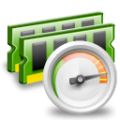Cada día ofrecemos un programa licenciado GRATIS que de otra manera tendrías que comprar!
MemOptimizer 3 estaba como Giveaway el día n 22 de agosto de 2009
Donde quiera que corra un programa basado para Windows, estará consumiendo recursos de la memoria - desafortunadamente muchos programas de Windows no "limpian" la memoria antes de usarse o algunos incluso dejan la memoria "bloqueada", previniendo que otros programas puedan tomar ventaja de esta, lo que hace que tu computador sea lento y tenga un peor desempeño!
MemOptimizerT monitorea tu sistema en segundo plano y libera los recursos para cuando estos son requeridos. El resultado es que tus programas correrán más rápido y tu PC será más estable que nunca!
The current text is the result of machine translation. You can help us improve it.
Requerimientos del Sistema:
Windows Vista, XP, 2003 and 2000
Publicado por:
Pointstone SoftwarePágina Oficial:
http://www.memoptimizer.com/Tamaño del Archivo:
1.8 MB
Precio:
$19.95
Mejores Titulos

System Cleaner es la manera más rápida y fácil de restaurar el rendimiento de tu PC, de curar las fallas aleatorias del sistema, de acelerar los tiempos de inicio y apagado y de liberar espacio desperdiciado en disco al mismo tiempo. System Cleaner también protege tu PC contra la falla del registro y la pérdida de datos causada por configuraciones inapropiadas, corrupción del registro y otros problemas comunes relacionados con Windows. System Cleaner es rápido y fácil y también protege tu privacidad online.

¡Tú sabes que has estado haciendo en tu computadora, pero esto no significa que todos lo sepan! Total Privacy es una herramienta segura y fácil de usar de Windows para la protección de la privacidad que limpia de manera segura los rastros de la actividad de Internet, actividades del sistema y la información sobre el historial de los programas almacenados en tu computadora. Es compatible con los principales exploradores además de cientos de plugins personalizados para abarcar los programas más populares disponibles.


Comentarios en MemOptimizer 3
Please add a comment explaining the reason behind your vote.
The Good
* It works (to an extent).
* Has the ability to do "automatic" optimization.
* Has CPU optimization/management tools also.
* Works with hotkeys.
* Has a nice shortcut system to allow you to optimize memory before X program is run.
The Bad
* Does not properly deal with all memory leaking programs.
* Buggy; I received quite a lot of errors regularly.
* Unable to open the "Help" file.
* Uses up a significant amount of computer resources during the actual process of optimizing your memory.
Free Alternatives
AnVir Task Manager
For final verdict, recommendations, and full review please click here.
Save | Cancel
- "many Windows programs ... often leave valuable memory locked”
This is rubbish : whenever a program executes, it uses memory segments that might be called "locked", but this is only the normal functioning of Windows or any other operating system. When a program terminates, all memory is released and nothing is ever left "locked".
When available memory is exceeded, which is almost impossible with today's computers that have memory in the gigabytes, Windows can swap inactive programs out to the disk. The memory strategy of Windows is to use all memory and avoid swap-outs, which is exactly the opposite of what such "optimizers" do!
The only "optimization" this program can do is force the swapping-out of memory segments belonging to programs currently active in memory, therefore thrashing the hard disk and adding slow-downs whenever a needed segment needs to be swapped back into memory.
My advice is to stay away from such programs - they have the tendency to optimize memory while slowing down the computer. If your computer is slow and has less than a gigabyte of memory, try adding more memory, but be aware of the fact that memory is not the only bottle-neck, and for example the on-board memory-controller may also be responsible for the slow down.
Save | Cancel
With all of the free memory optimizers available online, I didn't know that anyone was still trying to sell one.
Personally, I think if you are having memory issues, then you need to buy more memory and/or reduce the number of programs that are running on your computer. Also, make sure that there is enough free space on your hard drive to allow the virtual memory to work.
For me, this software will be a "don't want / don't need" program.
Save | Cancel
I also posted this on another giveaway, I guess it's relevant again:
"I saved two extremely insightful comments from an other GOTD RAM-related giveaway, they’re a great read, and there are more.
From Jay: BUY MORE:RAM(random access memory)…STOP BEING CHEAP PEOPLE…
RAM can be compared to a person’s short-term memory and the hard disk to the long-term memory. The short-term memory focuses on work at hand, but can only keep so many facts in view at one time. If short-term memory fills up, your brain sometimes is able to refresh it from facts stored in long-term memory. A computer also works this way. If RAM fills up, the processor needs to continually go to the hard disk to overlay old data in RAM with new, slowing down the computer’s operation. Unlike the hard disk which can become completely full of data so that it won’t accept any more, RAM never runs out of memory. It keeps operating, but much more slowly than you may want it to.
How Big is RAM?
RAM is small, both in physical size (it’s stored in microchips) and in the amount of data it can hold. It’s much smaller than your hard disk. A typical computer may come with 256 million bytes of RAM and a hard disk that can hold 40 billion bytes. RAM comes in the form of “discrete” (meaning separate) microchips and also in the form of modules that plug into holes in the computer’s motherboard. These holes connect through a bus or set of electrical paths to the processor. The hard drive, on the other hand, stores data on a magnetized surface that looks like a phonograph record.
Most personal computers are designed to allow you to add additional RAM modules up to a certain limit. Having more RAM in your computer reduces the number of times that the computer processor has to read data in from your hard disk, an operation that takes much longer than reading data from RAM. (RAM access time is in nanoseconds; hard disk access time is in milliseconds.)
Why Random Access?
RAM is called “random access” because any storage location can be accessed directly. Originally, the term distinguished regular core memory from offline memory, usually on magnetic tape in which an item of data could only be accessed by starting from the beginning of the tape and finding an address sequentially. Perhaps it should have been called “nonsequential memory” because RAM access is hardly random. RAM is organized and controlled in a way that enables data to be stored and retrieved directly to specific locations. A term IBM has preferred is direct access storage or memory. Note that other forms of storage such as the hard disk and CD-ROM are also accessed directly (or “randomly”) but the term random access is not applied to these forms of storage.
In addition to disk, floppy disk, and CD-ROM storage, another important form of storage is read-only memory (ROM), a more expensive kind of memory that retains data even when the computer is turned off. Every computer comes with a small amount of ROM that holds just enough programming so that the operating system can be loaded into RAM each time the computer is turned on.
And the second one:
From BuBBy: Memory “Optimizers” only make a difference if you want to believe (kind of like believing in fairies). I could explain memory management in XP or Vista, or how allocated memory is protected from other processes. I could give URLs of documents explaining why Memory Optimizers/Cleaners/Defraggers are unnecessary on XP/Vista.
Memory fragmentation does occur – but inside each individual application. Other applications cannot know what the memory in other applications should look like, what is used or unused. Windows allocates a block of memory to a program. The program doesn’t know (or care) where that memory comes from – from the programs viewpoint there is no mapping to any physical location. So “fragmentation” is only virtual, and only the program that owns that block of memory has any way of knowing if the memory is affected by fragmentation or segmentation. (because either the program or the user caused it)
When the program “decides to” or when the program “finishes” – that memory is returned to windows to be used for other purposes. So Program A cannot know what parts of memory that Program B has, that are being wasted or fragmented. It doesn’t even have any way to directly inspect the memory contents even if it did have a memory roadmap of Program B. (’A’ doesn’t know about ‘B’s good data from bad, leaked from current and valid – If there is a problem in B, then B has to fix it or release it).
Probably the logical answer I could give to somebody who doesn’t want to know the geeky details:-
Do you think, that if fixing all memory leaks, fragmentation and segmentation problems in all programs, could be done with a third party program that is hocked for $20 or $30 to anyone who “will only believe” – would Microsoft with all of their millions (billions?) of dollars in research and development – have come up with an equivalent in Windows? In fact surely such an earth shatteringly amazing development would’ve been bought out/taken over by Microsoft and patents filed? (Even if they only used it on their own code) :P
But hey, if “defragging” your memory or your mouse or whatever, makes you happy – if you think it’s making you go faster – That’s great, I wish you well (I hear wrapping a scarf around your head makes you go even faster if it is blowing behind you like the Red Baron). It’s not going to blow up your PC or give you cancer (at least it can’t be proven to be linked) – but for goodness sake – use this one today, or grab a free one from somewhere (doesn’t matter which – they are all as fantastic as each other). Just keep your money for something useful… extra RAM would be my suggestion."
If you want to learn more of how this type of software works (AKA doesn't work) also check the comments on previous giveaways, featuring RAM cleaners/optimizers.
Save | Cancel
I used this the last time it was offered here and couldn't see any gain in programs running faster or stability. Uninstalled. On downloads.com this app is 1.32MB, on here today it's 1.8. yet it's the same 3.10 version. Why the bloat?
Save | Cancel